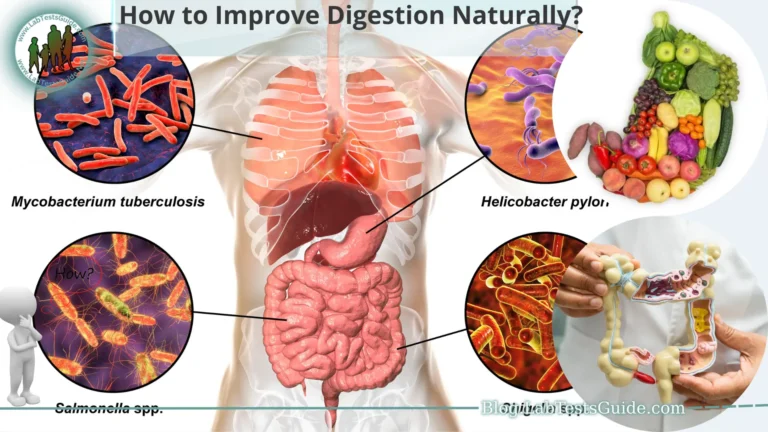A plant based diet refers to a dietary approach that primarily focuses on consuming plant foods while minimizing or excluding animal products. Plant-based diets can vary in their strictness, ranging from including small amounts of animal products to completely excluding them.

A plant-based diet is centered around consuming foods derived from plants, including fruits, vegetables, whole grains, legumes, nuts, and seeds, while minimizing or eliminating animal products. This dietary approach has gained significant attention in recent years due to its numerous health benefits and positive environmental impact.
By focusing on plant-based foods, individuals can experience a wide range of advantages that promote overall well-being and reduce the risk of chronic diseases. In this guide, we will explore the various benefits of adopting a plant-based diet, highlighting how it can improve heart health, lower the risk of chronic diseases, aid in weight management, and provide an array of other positive effects on health and the environment.
What is Plant-Based Diet:
It is centered around minimizing or excluding the intake of animal products, including meat, poultry, fish, eggs, and dairy.
The primary focus of a plant-based diet is on whole, unrefined plant foods that are rich in nutrients and fiber. These foods provide a wide range of vitamins, minerals, antioxidants, and phytochemicals that are beneficial for overall health and well-being.
A plant-based diet can be flexible and adaptable to individual preferences and needs. Some people may choose to follow a vegan diet, which excludes all animal products, while others may include small amounts of animal products on occasion, known as a flexitarian or semi-vegetarian approach. The key principle is to make plant foods the foundation of one’s diet and to consume them in their minimally processed or unprocessed forms.
Research has shown that adopting a plant-based diet can offer numerous health benefits, including reduced risk of chronic diseases such as heart disease, high blood pressure, type 2 diabetes, and certain types of cancer. It is also associated with improved weight management, better digestion, and increased intake of essential nutrients and antioxidants.
Furthermore, a plant-based diet is considered more environmentally sustainable compared to diets that rely heavily on animal products, as it requires fewer resources, produces fewer greenhouse gas emissions, and contributes to the preservation of land and water.
It is important to note that while a plant-based diet can be healthy, balanced, and provide all necessary nutrients, it requires proper planning to ensure adequate intake of essential nutrients such as protein, iron, vitamin B12, calcium, and omega-3 fatty acids. Consulting with a healthcare professional or registered dietitian can be helpful in designing a well-rounded plant-based eating plan that meets individual nutritional needs.
Table of Plant-Based Diet
| Plant-Based Diet | Examples: | Benefits: |
| Fruits | Apples, bananas, oranges, berries, grapes | Rich in vitamins, minerals, fiber, and antioxidants. Provide natural sweetness and variety to the diet. |
| Vegetables | Leafy greens (spinach, kale), cruciferous vegetables (broccoli, cauliflower), root vegetables (carrots, sweet potatoes) | Excellent sources of vitamins, minerals, and dietary fiber. Help boost immune function and support overall health. |
| Whole Grains | Quinoa, brown rice, oats, whole wheat bread, barley | High in fiber, vitamins, and minerals. Provide sustained energy, aid in digestion, and promote heart health. |
| Legumes | Lentils, chickpeas, black beans, tofu, tempeh | Excellent sources of plant-based protein, fiber, and iron. Promote satiety, support muscle growth, and contribute to a healthy gut. |
| Nuts and Seeds | Almonds, walnuts, chia seeds, flaxseeds, pumpkin seeds | Rich in healthy fats, protein, vitamins, and minerals. Provide a good source of omega-3 fatty acids and help reduce inflammation. |
| Plant-Based Protein Sources | Soy products (tofu, edamame), seitan, plant-based protein powders | Serve as alternatives to animal-based protein sources. Support muscle development, repair, and overall protein needs. |
| Healthy Fats | Avocado, olive oil, coconut oil, nut butters | Provide essential fatty acids, vitamins, and contribute to heart health. Help absorb fat-soluble vitamins and support brain function. |
| Plant-Based Dairy Alternatives (Optional) | Almond milk, soy milk, coconut yogurt | Suitable substitutes for those avoiding dairy. Provide calcium, vitamin D, and other nutrients found in traditional dairy products. |
| Herbs and Spices | Basil, turmeric, cinnamon, oregano, ginger | Add flavor, aroma, and nutritional value to dishes. Some spices offer anti-inflammatory and antioxidant properties. |
| Plant-Based Snacks | Fresh fruit, raw nuts, vegetable sticks with hummus, air-popped popcorn | Nutrient-dense alternatives to processed snacks. Satisfy hunger, provide energy, and support healthy snacking habits. |
Note: The table provides a variety of plant-based food categories along with examples and their respective benefits. It is not an exhaustive list but aims to give an overview of the diverse options available in a plant-based diet.
Essential Nutrients in a Plant-Based Diet:
Protein:
- Sources: Legumes (beans, lentils, chickpeas), tofu, tempeh, seitan, quinoa, nuts, and seeds.
- Benefits: Protein is crucial for building and repairing tissues, supporting immune function, and producing enzymes and hormones.
Iron:
- Sources: Dark leafy greens (spinach, kale), legumes, fortified cereals, whole grains, nuts, and seeds.
- Benefits: Iron is essential for carrying oxygen throughout the body and preventing iron-deficiency anemia.
Calcium:
- Sources: Fortified plant-based milk (soy, almond, oat), tofu, tempeh, leafy greens (collard greens, bok choy), almonds.
- Benefits: Calcium is necessary for strong bones and teeth, muscle function, and nerve transmission.
Vitamin B12:
- Sources: Fortified plant-based milk, nutritional yeast, fortified cereals, plant-based meat alternatives.
- Benefits: Vitamin B12 is important for nerve function, DNA synthesis, and the production of red blood cells. It is primarily found in animal products, so supplementation or fortified foods are recommended for plant-based diets.
Omega-3 Fatty Acids:
- Sources: Chia seeds, flaxseeds, hemp seeds, walnuts, algae-based supplements.
- Benefits: Omega-3 fatty acids are essential for brain health, heart health, and reducing inflammation in the body.
Vitamin D:
- Sources: Sunlight exposure (15-20 minutes per day), fortified plant-based milk, mushrooms exposed to sunlight.
- Benefits: Vitamin D is crucial for calcium absorption, bone health, and
Benefits for Heart Health:
- Lower Cholesterol Levels: Plant-based diets are naturally low in saturated fat and cholesterol, which can help lower blood cholesterol levels. High cholesterol is a risk factor for heart disease.
- Reduced Blood Pressure: Plant-based diets, especially those rich in fruits, vegetables, whole grains, and legumes, are associated with lower blood pressure levels. Lower blood pressure contributes to a healthier heart and reduces the risk of cardiovascular diseases.
- Decreased Risk of Heart Disease: Studies have shown that adopting a plant-based diet can significantly reduce the risk of developing heart disease. Plant-based diets are associated with lower rates of coronary artery disease, heart attacks, and strokes.
- Improved Blood Sugar Control: Plant-based diets, particularly those focused on whole grains, legumes, and fiber-rich foods, can help regulate blood sugar levels. This is important in preventing and managing conditions like diabetes, which can increase the risk of heart disease.
- Reduced Inflammation: Plant-based diets, abundant in fruits, vegetables, and nuts, are rich in antioxidants and anti-inflammatory compounds. These help reduce inflammation in the body, a key factor in the development of heart disease.
- Healthier Weight Management: Plant-based diets are typically lower in calorie density and higher in fiber content, promoting healthy weight management. Maintaining a healthy weight is crucial for heart health and reduces the risk of obesity-related heart conditions.
- Improved Vascular Function: Plant-based diets have been shown to improve endothelial function, which is essential for healthy blood vessels. Improved vascular function supports better blood flow and reduces the risk of arterial stiffness and atherosclerosis.
- Enhanced Nutrient Profile: Plant-based diets provide a wide range of vitamins, minerals, and antioxidants that support heart health. These include potassium, magnesium, folate, vitamin C, and phytochemicals, which play roles in reducing oxidative stress and promoting cardiovascular well-being.
It’s important to note that while a plant-based diet offers numerous benefits for heart health, individual results may vary. It’s advisable to consult with a healthcare professional or registered dietitian to ensure a well-balanced plant-based diet that meets your specific nutritional needs and health goals.
Benefits for Weight Loss and Management:
- High in Fiber: Plant-based diets are typically high in fiber due to the abundance of fruits, vegetables, whole grains, legumes, and nuts. Fiber helps increase satiety, making you feel fuller for longer and reducing overall calorie intake.
- Lower in Calories: Many plant-based foods, such as fruits and vegetables, are naturally low in calories while being nutrient-dense. By focusing on these foods, you can consume larger volumes of food for fewer calories, aiding in weight loss and management.
- Reduced Consumption of Processed Foods: Plant-based diets often discourage or minimize the intake of processed and high-calorie foods, such as sugary snacks, fried foods, and processed meats. These food choices can contribute to weight gain and unhealthy eating patterns.
- Lower in Saturated Fat: Plant-based diets tend to be lower in saturated fat, which is primarily found in animal products. By reducing saturated fat intake, you can lower calorie intake and promote a healthier lipid profile, which is beneficial for weight management and heart health.
- Increased Nutrient Density: Plant-based diets are rich in essential nutrients, including vitamins, minerals, and antioxidants, while being lower in unhealthy fats. This helps ensure that your body receives adequate nutrition while managing calorie intake, promoting overall health and weight management.
- Enhanced Gut Health: Plant-based diets high in fiber support a healthy gut microbiome. A diverse and balanced gut microbiota has been linked to better weight management and reduced risk of obesity.
- Sustainable Long-Term Approach: Plant-based diets can be more sustainable for long-term weight management compared to restrictive diets. They offer a wide variety of food options and can be customized to individual preferences, making them easier to adhere to in the long run.
- Improved Overall Health: By focusing on plant-based foods, you are more likely to consume a diet rich in nutrients, antioxidants, and phytochemicals that support overall health. This can have a positive impact on weight management and reduce the risk of chronic diseases.
It’s important to note that individual results may vary, and weight loss and management are influenced by various factors, including overall calorie intake, physical activity level, and individual metabolism. Consulting with a healthcare professional or registered dietitian can provide personalized guidance on a plant-based diet that suits your specific needs and weight management goals.
Benefits for Diabetes:
- Improved Blood Sugar Control: Plant-based diets, particularly those high in fiber and low in refined carbohydrates, can help regulate blood sugar levels. The high fiber content slows down the digestion and absorption of carbohydrates, resulting in a slower and steadier release of glucose into the bloodstream.
- Increased Insulin Sensitivity: Plant-based diets have been associated with increased insulin sensitivity, which means the body’s cells become more responsive to insulin. This can help improve glucose uptake by cells and promote better blood sugar control.
- Weight Management: Plant-based diets, particularly those emphasizing whole foods and limiting processed foods, can contribute to weight loss and weight management. Maintaining a healthy weight is crucial for individuals with diabetes as it can improve insulin sensitivity and glycemic control.
- Reduced Risk of Type 2 Diabetes: Studies have shown that adopting a plant-based diet can lower the risk of developing type 2 diabetes. The diet’s emphasis on whole grains, legumes, fruits, vegetables, and healthy fats can help prevent insulin resistance and reduce the likelihood of developing the condition.
- Lower HbA1c Levels: HbA1c is a measure of long-term blood sugar control. Plant-based diets have been shown to reduce HbA1c levels in individuals with type 2 diabetes, indicating improved glycemic control.
- Cardiovascular Benefits: Plant-based diets, when properly balanced, can help reduce the risk of cardiovascular diseases, which are often associated with diabetes. By focusing on whole plant foods, individuals can lower cholesterol levels, improve blood pressure, and reduce the risk of heart disease.
Increased Intake of Antioxidants: Plant-based diets provide a wide range of antioxidants, such as vitamins C and E, carotenoids, and flavonoids. These antioxidants help reduce oxidative stress and inflammation, which are factors implicated in the development and progression of diabetes.
Supportive Nutritional Profile: Plant-based diets can provide an array of essential nutrients, including fiber, vitamins, minerals, and phytochemicals, that support overall health and wellbeing. This nutrient-dense approach helps address nutrient deficiencies often associated with diabetes management.
It’s important to note that while a plant-based diet can be beneficial for individuals with diabetes, it should be implemented in consultation with a healthcare professional or registered dietitian. They can provide personalized guidance, monitor blood sugar levels, and ensure that nutritional needs are met while considering individual preferences and health goals.
Benefits for Cancer Prevention:
- Rich in Antioxidants: Plant-based diets are naturally rich in antioxidants, such as vitamins A, C, and E, as well as phytochemicals. Antioxidants help protect cells from damage caused by free radicals, which can contribute to the development of cancer.
- High in Fiber: Plant-based diets are typically high in dietary fiber, which has been associated with a reduced risk of certain types of cancer, including colorectal cancer. Fiber helps promote regular bowel movements and supports a healthy digestive system.
- Abundance of Phytochemicals: Plant-based diets provide a wide variety of phytochemicals, which are natural compounds found in plants. These phytochemicals, such as carotenoids, flavonoids, and polyphenols, have been shown to have anti-cancer properties and help inhibit the growth of cancer cells.
- Reduced Intake of Processed and Red Meats: Plant-based diets often advocate for reducing or eliminating the consumption of processed meats and red meats. Both processed and red meats have been linked to an increased risk of certain cancers, particularly colorectal cancer.
- Lower in Saturated Fat: Plant-based diets are generally lower in saturated fat, which is mainly found in animal products. High intake of saturated fat has been associated with an increased risk of various cancers, including breast, prostate, and colorectal cancers.
- Protective Effect of Cruciferous Vegetables: Cruciferous vegetables, such as broccoli, cauliflower, Brussels sprouts, and cabbage, are rich in nutrients and contain compounds with potential anti-cancer effects. These vegetables are known for their ability to stimulate detoxification enzymes and inhibit the growth of cancer cells.
- Protective Effect of Legumes: Legumes, including beans, lentils, and chickpeas, are high in fiber, protein, and various beneficial compounds. Consumption of legumes has been associated with a reduced risk of certain cancers, including colorectal and breast cancers.
- Healthy Body Weight Management: Plant-based diets, when focused on whole foods and limited in processed foods, can contribute to weight management and the maintenance of a healthy body weight. Excess body weight is a risk factor for several types of cancers, and maintaining a healthy weight can help reduce the risk.
It’s important to note that while a plant-based diet can be beneficial for cancer prevention, it is not a guaranteed preventive measure. Other factors such as genetics, lifestyle choices, and environmental exposures also play a role in cancer development. It is advisable to consult with a healthcare professional or registered dietitian for personalized guidance on cancer prevention strategies and a well-balanced plant-based eating plan.
Benefits for Gut Health:
- High Fiber Content: Plant-based diets are typically high in dietary fiber, which plays a crucial role in maintaining a healthy gut. Fiber acts as a prebiotic, providing nourishment for beneficial gut bacteria and promoting their growth.
- Enhanced Microbiome Diversity: Plant-based diets rich in a variety of fruits, vegetables, whole grains, legumes, and nuts can contribute to a diverse and balanced gut microbiome. A diverse microbiome is associated with better overall gut health and improved digestion.
- Improved Bowel Regularity: The high fiber content in plant-based diets promotes regular bowel movements and helps prevent constipation. Adequate fiber intake supports the growth of beneficial bacteria and the production of short-chain fatty acids, which are important for colon health.
- Reduced Inflammation: Plant-based diets, particularly those rich in fruits, vegetables, and whole grains, are known for their anti-inflammatory properties. By reducing inflammation in the gut, these diets can help alleviate symptoms of inflammatory bowel diseases and promote a healthier gut environment.
- Protection against Gut Disorders: Plant-based diets have been associated with a reduced risk of certain gut disorders, such as diverticular disease and colorectal cancer. The abundance of fiber, antioxidants, and phytochemicals in plant-based foods can contribute to a protective effect on the gut.
- Support for Gut Barrier Function: Plant-based diets provide nutrients and compounds that support the integrity of the gut barrier. This barrier helps prevent harmful substances from entering the bloodstream and promotes the absorption of beneficial nutrients.
- Increased Consumption of Fermented Foods: Plant-based diets often include fermented foods such as sauerkraut, kimchi, tempeh, and kombucha. These foods contain beneficial probiotics that help populate the gut with healthy bacteria, promoting a balanced gut microbiome.
- Optimal pH Balance: Plant-based diets tend to be more alkaline, which can help maintain a healthy pH balance in the gut. An optimal pH balance supports the growth of beneficial bacteria and inhibits the growth of harmful bacteria.
It’s important to note that while plant-based diets can provide numerous benefits for gut health, individual responses may vary. It’s recommended to listen to your body, consume a variety of plant-based foods, and consult with a healthcare professional or registered dietitian for personalized guidance on optimizing gut health through a plant-based diet.
Benefits for Mental Health
- Nutrient-Rich Diet: Plant-based diets, when well-planned, can provide a wide range of essential nutrients, including vitamins, minerals, and antioxidants. These nutrients play a crucial role in supporting brain health and maintaining optimal mental function.
- Increased Intake of Antioxidants: Plant-based diets are rich in antioxidants, which help protect the brain from oxidative stress and inflammation. Antioxidants have been associated with a reduced risk of mental decline and age-related cognitive disorders.
- Improved Mood and Emotional Well-being: Research suggests that individuals following plant-based diets may experience improved mood and reduced risk of depression. Plant-based foods, such as fruits, vegetables, and whole grains, contain nutrients and phytochemicals that have been linked to positive mental health outcomes.
- Balanced Blood Sugar Levels: Plant-based diets that prioritize whole grains, legumes, and fiber-rich foods can help maintain balanced blood sugar levels. Stable blood sugar levels are important for regulating mood and preventing mood swings and energy crashes.
- Gut-Brain Connection: Plant-based diets that promote a healthy gut microbiome can positively impact mental health. The gut and brain communicate through the gut-brain axis, and a healthy gut microbiome has been linked to improved mood and mental well-being.
- Reduced Inflammation: Plant-based diets, particularly those rich in fruits, vegetables, and healthy fats, have anti-inflammatory properties. Chronic inflammation has been associated with an increased risk of mental health disorders, and reducing inflammation through a plant-based diet may have a positive impact on mental health.
- Lower Intake of Processed Foods: Plant-based diets often discourage the consumption of processed foods that are high in unhealthy fats, sugars, and additives. By reducing the intake of these foods, individuals may experience improved mental clarity and overall well-being.
- Environmental and Ethical Factors: The conscious choice to follow a plant-based diet due to environmental or ethical reasons can positively impact mental health. Aligning one’s actions with personal values and making choices that contribute to the well-being of animals and the planet can enhance overall mental well-being.
It’s important to note that while a plant-based diet can support mental health, it is not a substitute for professional mental health care. If you’re experiencing mental health concerns, it’s essential to seek guidance from a healthcare professional or mental health specialist for a comprehensive evaluation and appropriate treatment.
Benefits for the Environment:
- Reduced Greenhouse Gas Emissions: Plant-based diets have a lower carbon footprint compared to diets that include animal products. Livestock production is a significant contributor to greenhouse gas emissions, including methane and carbon dioxide, which contribute to climate change. Choosing plant-based foods can help reduce the environmental impact associated with food production.
- Preservation of Natural Resources: Plant-based diets require fewer natural resources, such as water and land, compared to animal-based diets. Animal agriculture requires large amounts of water for livestock hydration and crop cultivation for animal feed. By reducing reliance on animal products, plant-based diets help conserve water and preserve land for other purposes.
- Decreased Deforestation: Animal agriculture is a leading cause of deforestation worldwide. Forests are cleared to create grazing land for livestock or to cultivate crops for animal feed. Adopting a plant-based diet reduces the demand for these practices, helping protect forests and their biodiversity.
- Conservation of Water Resources: Animal agriculture is water-intensive. By choosing plant-based foods, individuals can significantly reduce their water footprint. It takes significantly less water to produce plant-based foods compared to animal products, contributing to water conservation efforts.
- Minimized Pollution: Livestock farming contributes to water pollution through the release of animal waste and the use of chemical fertilizers and pesticides for feed crops. Plant-based diets reduce the pollution associated with intensive animal farming, leading to cleaner water sources and healthier ecosystems.
- Preservation of Biodiversity: Plant-based diets help protect biodiversity by reducing the demand for land conversion and habitat destruction. By preserving natural habitats, plant-based diets support the conservation of diverse ecosystems and the species that depend on them.
- Energy Efficiency: Plant-based diets tend to be more energy-efficient compared to animal-based diets. The production of plant-based foods requires fewer energy inputs, such as fossil fuels used for transportation, feed production, and animal husbandry.
- Sustainable Food System: Shifting towards plant-based diets contributes to the development of a more sustainable and resilient food system. By reducing reliance on animal agriculture, resources can be allocated more efficiently, and food production can be directed towards meeting the nutritional needs of a growing global population.
It’s important to note that individual dietary choices alone may not solve all environmental issues. Other factors, such as sustainable farming practices, food waste reduction, and overall consumption patterns, also play a role in creating a more environmentally friendly food system.
FAQS:
Is a plant-based diet suitable for everyone?
A plant-based diet can be suitable for most individuals, including children, teenagers, adults, and seniors. However, it’s important to ensure that nutritional needs are met by consuming a variety of plant-based foods to obtain essential nutrients. Some individuals, such as pregnant or lactating women, athletes, or those with specific health conditions, may require additional consideration and guidance from a healthcare professional or registered dietitian.
Can I get enough protein on a plant-based diet?
Yes, it is possible to obtain sufficient protein from a well-planned plant-based diet. Plant-based protein sources include legumes (beans, lentils, chickpeas), tofu, tempeh, seitan, edamame, quinoa, nuts, and seeds. Combining different plant protein sources throughout the day can ensure a balanced amino acid profile. Additionally, incorporating whole grains and vegetables can further contribute to protein intake.
What about vitamin B12 on a plant-based diet?
Vitamin B12 is primarily found in animal-based foods, and plant-based diets may be deficient in this essential nutrient. It’s important for individuals following a plant-based diet to ensure an adequate intake of vitamin B12 through fortified foods (such as plant-based milk, breakfast cereals, and nutritional yeast) or supplements. Regular monitoring of vitamin B12 levels and consultation with a healthcare professional or registered dietitian is recommended.
Can a plant-based diet provide enough iron?
Plant-based sources of iron include legumes, tofu, tempeh, nuts, seeds, whole grains, and dark leafy greens. Although the iron from plant-based sources is less easily absorbed compared to iron from animal products, consuming vitamin C-rich foods (such as citrus fruits, bell peppers, and berries) alongside iron-rich foods can enhance iron absorption. Including a variety of plant-based iron sources and monitoring iron levels can help ensure adequate intake.
Is it more expensive to follow a plant-based diet?
The cost of a plant-based diet can vary depending on food choices and individual circumstances. While some plant-based foods may be more expensive, such as specialty plant-based products, many affordable plant-based options are available, including grains, legumes, fruits, vegetables, and bulk items. Planning meals, buying in-season produce, and cooking at home can help make a plant-based diet more affordable.
Can a plant-based diet provide enough energy for physical activity?
Yes, a well-planned plant-based diet can provide sufficient energy for physical activity. It’s important to consume an adequate amount of calories from a variety of plant-based foods to meet energy needs. Including sources of carbohydrates, such as whole grains, fruits, and starchy vegetables, can provide the necessary fuel for physical activity.
Can a plant-based diet be sustainable in the long term?
Yes, a plant-based diet can be sustainable in the long term. It offers a wide variety of plant-based foods and can be adapted to individual preferences and cultural backgrounds. Sustainability also extends beyond dietary choices and involves considerations such as reducing food waste, supporting local and organic agriculture, and minimizing the environmental impact of food production and transportation.
It’s important to note that individual nutritional needs and health goals may vary, and consulting with a healthcare professional or registered dietitian is recommended for personalized guidance on adopting and maintaining a plant-based diet.
Conclusion
In conclusion, a plant-based diet offers numerous benefits for individuals and the environment. It is characterized by a focus on whole, minimally processed plant foods, such as fruits, vegetables, whole grains, legumes, nuts, and seeds, while minimizing or excluding animal products. Some of the key benefits of a plant-based diet include:
- Improved health outcomes, including reduced risk of heart disease, obesity, and certain types of cancer.
- Weight loss and management support due to the high fiber content and lower calorie density of plant-based foods.
- Better blood sugar control and reduced risk of diabetes.
- Protection and support for gut health through increased fiber intake and a diverse microbiome.
- Positive impact on mental health and emotional well-being.
- Reduced environmental footprint, including lower greenhouse gas emissions, water conservation, and preservation of natural resources.
- Contribution to sustainable and ethical food choices.
It’s important to note that adopting a plant-based diet should be approached in a balanced and well-planned manner to ensure adequate intake of essential nutrients. Individual needs and preferences may vary, and consulting with a healthcare professional or registered dietitian can provide personalized guidance and support on adopting and maintaining a plant-based lifestyle.
By embracing a plant-based diet, individuals can make a positive impact on their health, the environment, and animal welfare while enjoying a diverse and nutritious range of plant-based foods.






